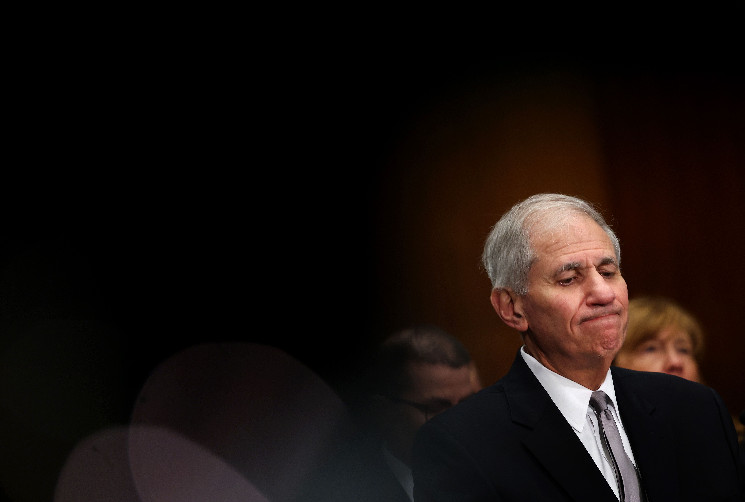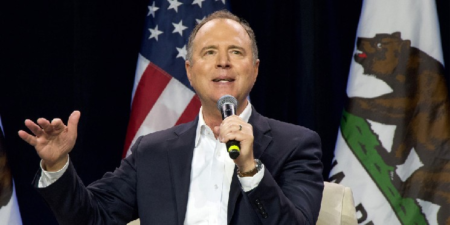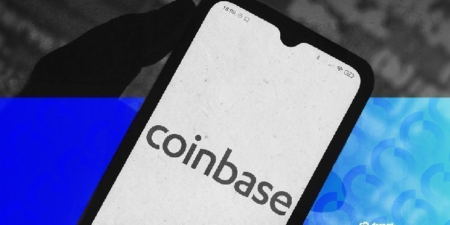Crypto banking activity was paused or prevented by the Federal Deposit Insurance Corp. at a large number of U.S. banks in 2022, according to communications pried loose by a research firm hired by Coinbase Inc. (COIN).
Coinbase’s hired help, History Associates Inc., had taken the FDIC and the Securities and Exchange Commission to court in June and finally won access to certain internal FDIC communications. The heavily-redacted documents emerged on Friday, showing the banking regulator slamming the brakes on lenders offering or considering products and services in the digital assets sector.
“We respectfully ask that you pause all crypto asset-related activity,” the regulator wrote in one of the 23 letters shared by the crypto exchange. “The FDIC will notify all FDIC-supervised banks at a later date when a determination has been made on the supervisory expectations for engaging in crypto asset-related activity.”
The industry has long complained that it’s been under a banking crisis in which companies and leading crypto figures are blocked from U.S. bank services. Coinbase Chief Legal Officer Paul Grewal argued that these letters represent hard evidence that crypto businesses were systematically walled off from banking by the regulator.
“The letters show that this was no conspiracy theory at all, that this was not just rank speculation or the musings of a paranoid industry,” Grewal said in an interview with CoinDesk. “There was a concerted plan on the part of the FDIC that they carried out — without any reluctance — to deny banking services to a legal American industry. That should give everyone great pause.”
Read More: Citibank Debanked Ripple’s Brad Garlinghouse Due to Crypto, Exec Says
Though much of the text of the FDIC letters is blacked out and the specific institutions aren’t identified, the communications dated throughout 2022 make it clear that the various crypto activities bankers submitted for FDIC approval wouldn’t be moving forward until the banks could answer questions on how they would meet compliance demands, which didn’t yet seem fleshed out. In some cases, the activity was stopped before it started, and in others, the agency seemed to caution against any further expansion or was asking a bank to halt a line of business until the agency could finish reviewing the firm’s request.
“We expect you to satisfactorily address these and any subsequent questions (in advance of implementation) to ensure the bank of operating in a safe and sound manner,” read a typical example.
Some of the confidential letters included dozens of highly complex and demanding questions posed to the banks. But many of the documents also indicated the agency wasn’t yet sure what regulatory filings would even be required before it could green-light crypto business.
While the three primary banking regulators in the U.S. — also including the Federal Reserve and Office of the Comptroller of the Currency — have issued some broad cautionary guidance about crypto, the agencies haven’t instituted a formal set of rules regulating the sector.
An FDIC spokesperson didn’t immediately respond to a request for comment on the letters sent after hours on Thursday.
Grewal said the next step in federal court will be to request that the letters be cleared of the redactions, revealing the institutions, the services they sought to offer and all the questions they were asked. That will get to the “why” behind the FDIC’s stance, he said.
“Even after federal courts ordered the FDIC to produce this information over and over again, they continue to drag their feet, and we think it’s time that they stop,” Grewal said.
The debanking campaign has been known in the industry as Operation Chokepoint 2.0 after a previous government effort to sever controversial but legal businesses from banking. The topic arose again in Congress this week during a hearing of the House Financial Services Committee, where crypto business leaders testified that their companies had been cut off from financial services.
“We’ve also been debanked,” said Nathan McCauley, the CEO of Anchorage Digital, a bank federally chartered in the U.S. by the OCC. “It’s particularly surprising, because we ourselves are a national bank.”
Read the full article here









